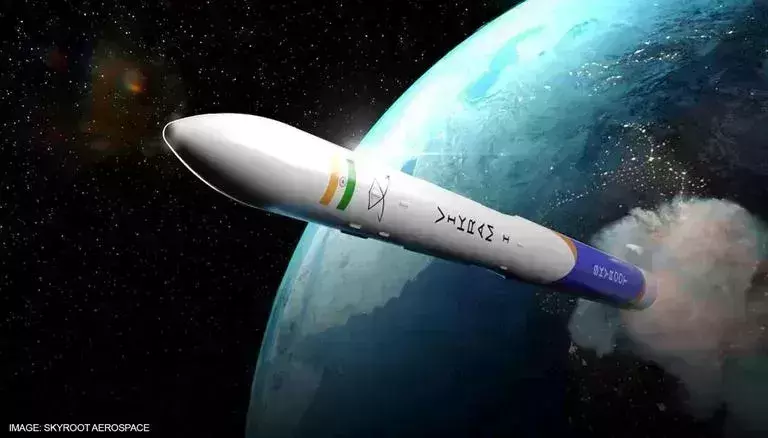
Entering global space race, India's first privately made rocket ready for launching
text_fieldsNew Delhi: Signaling at involvement of more private sector players in India's space research, Telangana based Skyroot Aerospace is all set to launch India's first privately made rocket days away.
The launch will mark India joining the club of a few countries including the US, Europe, and Russia that have opened their space sector to private players like SpaceX and Blue Origin.
In the second week of November, the mission called "Prarambha" will see Vikram-S rocket climbing up skies from the Satish Dhawan Space Center in Sriharikota carrying three separate payloads, setting in motion India's commercial space exploration, according to a report in India Today.
The three student-made payloads on the homegrown launch vehicle include one by SpaceKidz India developed by students from several countries.
The three-stage solid motor rocket will scale up carrying 80 kg payload to an altitude of 120 km crossing the Karmen line where space begins.
The demonstration flight, according to Sireesh Pallikonda Business Development Lead, Skyroot, will pave the way for the launch of Vikram-I launch vehicle with customer payloads, according to India Today.
Though a demonstration mission, Prarambh is still a " full-scale" suborbital launch for the company aiming at strengthening the private space sector in the company.
The three variants of the Vikram rocket being developed by Skyroot are Vikram-1to carry 480 kg to Low Earth Orbit. While the Vikram-II is equipped can carry 595 payloads, Vikram-III is equipped to lift an 815 kg to 500 km Low Inclination Orbit.
The launch is a new beginning for the Indian space sector to work alongside the Indian Space Research organization exploring the possibilities, according to the report.
Meanwhile, Isro chief S Somnath reportedly said the country needed new players in the space sector to make economically viable programmes.
Isro and InSpace have been working closely with private companies offering expertise and technical know-how.






















